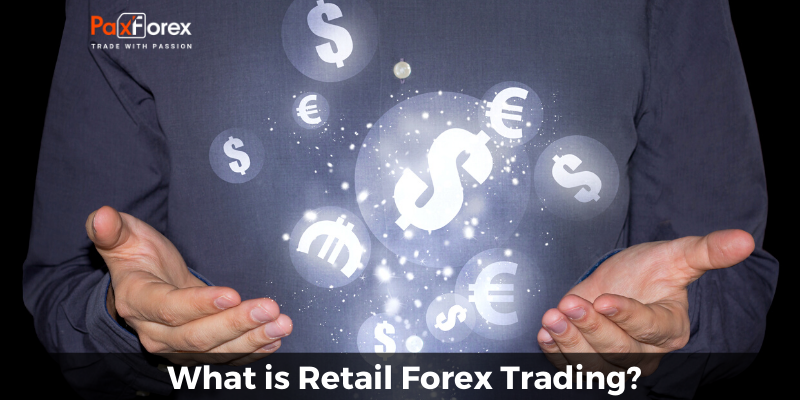
Retail foreign exchange trading is a small segment of the larger foreign exchange market where individuals speculate on the exchange rate between different currencies. This segment has developed with the advent of dedicated electronic trading platforms and the internet which have allowed individuals to access the global currency markets. In 2016, it was reported that volume from retail foreign exchange trading represents 5.5% of the whole foreign exchange market or $280 billion in daily trading turnover.
As the largest market, and the one with the highest level of liquidity, the forex market offers numerous benefits for traders. Individual traders can access the same trades as central banks and online financial institutions, and this market involves a daily volume that is typically between $4 trillion and $6 trillion, and this is in US dollars. The forex market is considered an asset class, and it is often used for risk mitigation by large organizations and funds, as well as profits from successful trades.
Individuals log on to a broker’s online platform to deposit cash and bet on the short term direction of exchange rates, or currency pairs. Like a bookmakers, the broker usually acts as the counter party to these bets. Unlike a bookmaker, however, the broker also offers leverage: allowing clients to borrow more money than they have deposited to increase the value of their trading positions.
Over the last few years the retail brokerage houses have made retail forex trading affordable, and it is highly accessible as well. Beginners in the forex market can start out using a paper account or demo, so they do not risk capital until they are comfortable trading and experienced in the forex market. Being a forex trader offers the most amazing potential lifestyle of any profession in the world. It’s not easy to get there, but if you are determined and disciplined, you can make it happen.
The retail forex trading industry is growing everyday with the advent of trading platforms and their ease of accessibility on the internet. Forex traders access the market indirectly either through a broker or a bank. There are two main types of retail forex brokers: brokers and dealers. Brokers work as an agent for the trader by trying to find the best price in the market and executing on behalf of the customer. Dealers are also called market makers because they ‘make the market’ for the trader and act as the counter-party to their transactions, they quote a price they are willing to deal at and are compensated through the spread, which is the difference between the buy and sell price.







